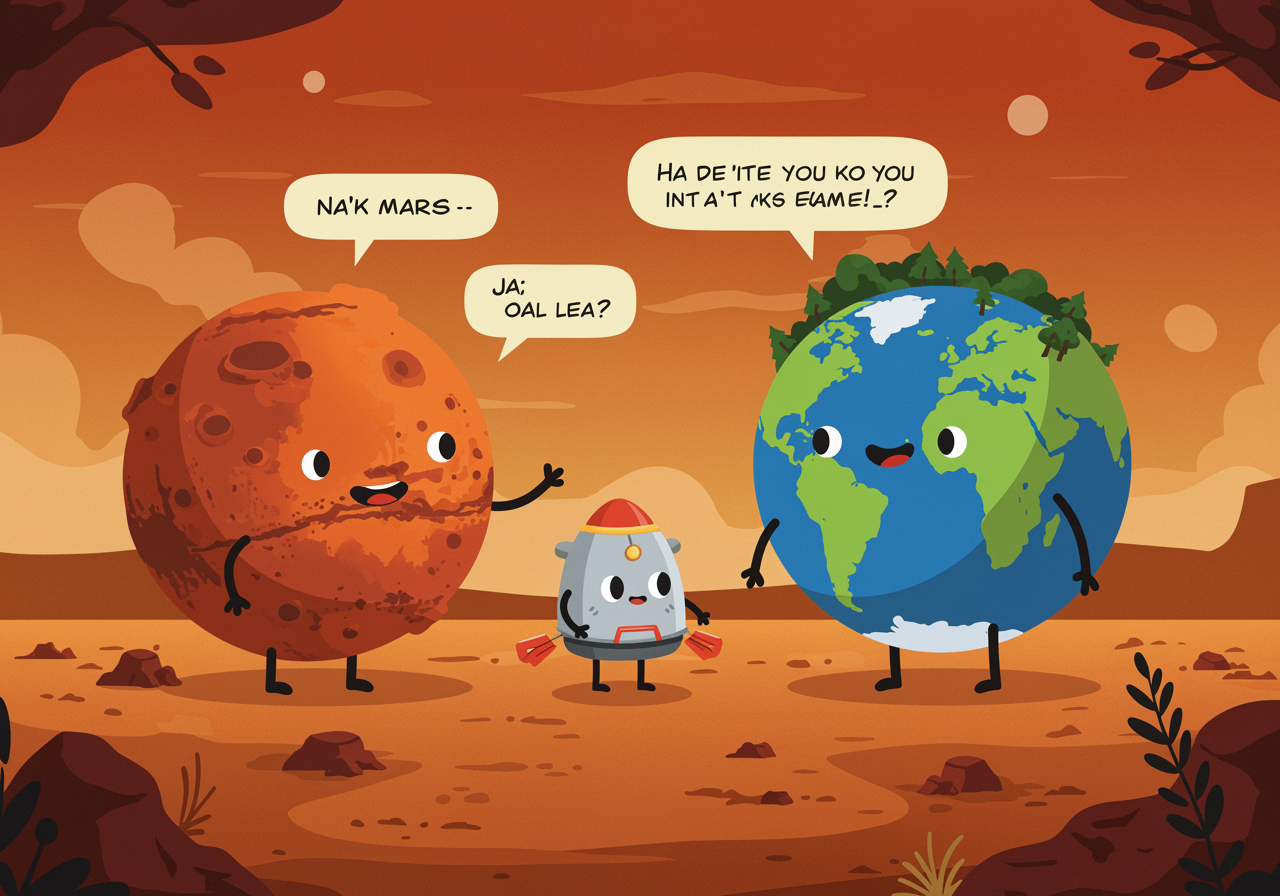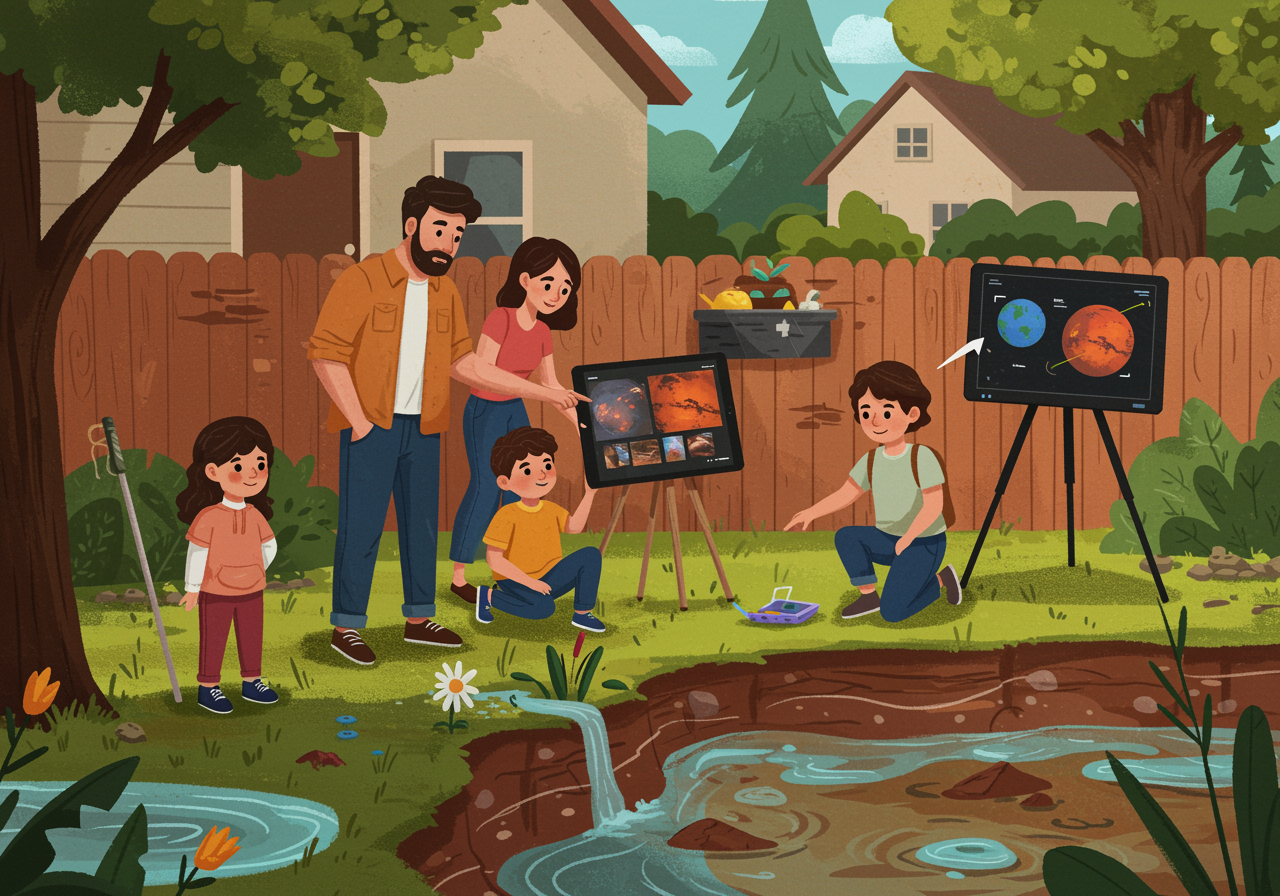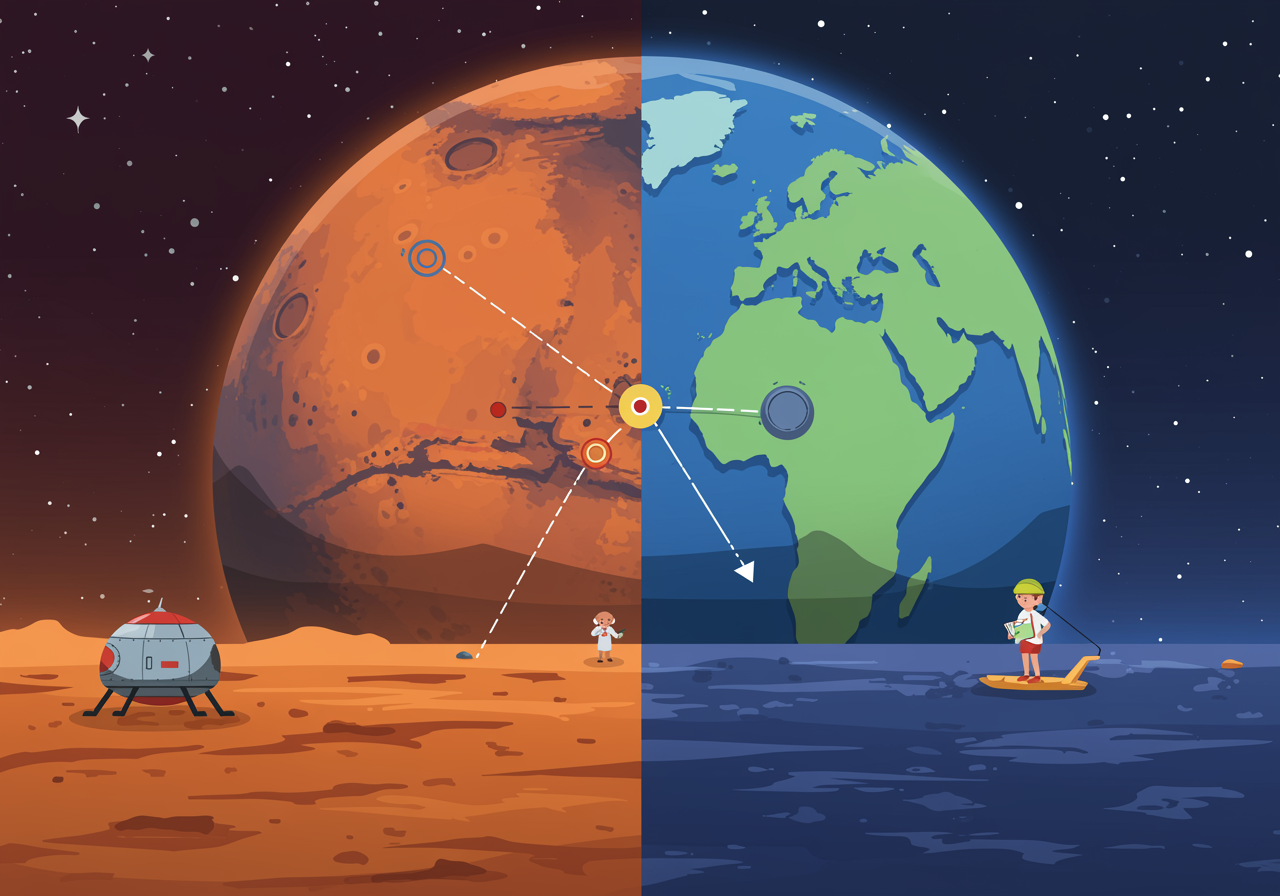Mars: The Red Planet That Could Save Our Blue One

Why exploring our neighbor planet is actually about protecting our home
Discover how studying Mars—a planet that lost its atmosphere and water—can teach us powerful lessons about keeping Earth healthy and thriving.
Overview
Mars isn't just a cool destination for future astronauts—it's like a giant science lab that helps us understand what could happen to Earth. Think of Mars as Earth's older sibling who made some mistakes we can learn from. By studying how Mars lost its thick atmosphere and flowing rivers, scientists discover clues about protecting our own planet's climate. Plus, the amazing technology we create to survive on Mars often comes back to help us live more sustainably here on Earth!

Understand in 30 Seconds
Get up to speed quickly
- Mars Used to Be Like Earth: Billions of years ago, Mars had rivers, lakes, and a thick atmosphere. Something went wrong, and now it's a cold, dry desert.
- Climate Change Detective Work: Scientists study Mars' climate history to understand how planets can change dramatically and what we can do to prevent it on Earth.
- Space Tech Helps Earth: Technologies invented for Mars missions—like water recycling and solar power—often become solutions for environmental problems on Earth.
- Practice Makes Perfect: Learning to live sustainably on Mars teaches us better ways to take care of Earth's resources and environment.
Real Life Scenario
Situations you can relate to
Imagine your house had a really good heating system, but something broke and now it's freezing cold all the time. You'd want to figure out what went wrong so it doesn't happen to your neighbor's house, right? That's exactly what Mars is like—it used to have a 'heating system' (thick atmosphere) that kept it warm and wet, but something went wrong. Now scientists are like detective-engineers, studying Mars' 'broken heating system' to make sure Earth's system stays healthy. Have you ever noticed how NASA inventions like memory foam, water filters, and improved solar panels started in space programs but now help people on Earth every day?

Role Play
Spark a conversation with “what if” scenarios
What if you were a Mars detective trying to solve the mystery of what happened to Mars' water?
- Role play: Take turns being 'Mars detectives' examining clues around your house—look for signs of water erosion in your yard, compare old and new photos of landscapes, and discuss what evidence tells us about Earth's climate.
What if you had to design a sustainable city for Mars colonists?
- Role play: Design a 'Mars city' using recyclable materials from around your home, focusing on water recycling, renewable energy, and growing food—then discuss how these same ideas could improve your real neighborhood.
What if you were a Mars mission commander sending updates back to Earth?
- Role play: Create 'mission reports' describing Mars discoveries and their connections to Earth's environment, taking turns being the commander and mission control asking questions.
FAQs
Frequently asked questions people want to know
Why can't we just live on Mars if Earth gets too damaged?
Mars is extremely harsh—no breathable air, deadly radiation, and temperatures that can freeze carbon dioxide. It would take massive technology and resources just to survive there, making it much easier and smarter to protect Earth instead.
How does studying a dead planet help a living one?
Mars shows us what happens when a planet loses its protective atmosphere and climate systems. It's like studying a patient who got sick to learn how to keep healthy people from getting the same disease.
What Mars technologies actually help Earth right now?
Water purification systems, advanced solar panels, lightweight materials, weather monitoring satellites, and even robotic farming techniques developed for Mars missions are now used to solve problems on Earth.
Examples in the Wild
See how this works day to day
- NASA's MOXIE experiment on the Perseverance rover successfully converted Mars' carbon dioxide into oxygen, leading to improved carbon capture technology for fighting climate change on Earth. (NASA JPL)
- Water recycling systems designed for Mars missions are now being used in drought-stricken areas and developing countries to provide clean drinking water. (NASA Spinoff Technologies)
- Studies of Mars' ancient lake beds are helping scientists understand how Earth's climate patterns might change in different regions as global temperatures rise. (Journal of Geophysical Research)
- Vertical farming techniques developed for growing food on Mars are being used in urban areas to produce fresh food with 95% less water than traditional farming. (MIT Technology Review)
In Summary
What you should know before you start
- Mars exploration teaches us about climate change by showing us what happens when a planet loses its atmosphere and water
- Technologies invented for Mars survival often become solutions for Earth's environmental challenges
- Studying Mars' geological history helps scientists predict and prevent similar changes on Earth
- Learning to live sustainably on Mars makes us better at protecting and conserving Earth's resources
Pro-tip for Parents
You got this!
If your teen seems skeptical about the Mars-Earth connection, start with the 'space tech in your home' angle—from GPS to memory foam to water filters. Once they see how space exploration already impacts their daily life, they'll be more interested in discussing how Mars research specifically helps Earth's future. The key is connecting abstract planetary science to concrete examples they can touch and experience.

Keep an Eye Out For
Find these examples in everyday life
- News about Mars rover discoveries, especially water or atmospheric findings that relate to Earth's climate
- Stories about 'NASA spinoff technologies' being used to solve environmental problems
- Weather events or climate changes that scientists compare to Mars' ancient climate patterns
Explore Beyond
Look up these related research topics
- How do other planets in our solar system teach us about Earth? (Venus' greenhouse effect, Jupiter's protective role)
- What everyday technologies came from space programs, and how do they help the environment?
- How do scientists use Earth as a laboratory to prepare for exploring other planets?